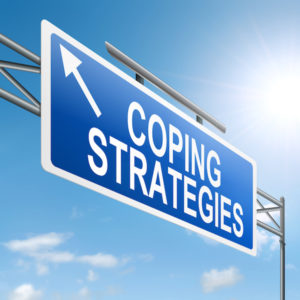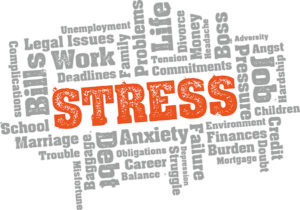Did you know that nearly 17.3 million Americans are currently diagnosed with major depressive disorder? This number is not insignificant and is likely lower than the true number due to the stigma around seeking out help for mental health concerns.

If you have experienced a depressive episode or currently find yourself in a dark place, the good news is that help is available. These tips for coping with depression can help you get your head above water if you aren’t able to meet with a therapist right away. Depressive symptoms can have a profound negative impact on your relationships, school or work, and personal life.
Recognizing Depression
Depression doesn’t always look like it does in the movies. Many people who experience depression are able to get out of bed in the morning and continue on with their daily lives, though they may not find any enjoyment in it anymore. Depressive symptoms can look different depending on your gender, age, cultural background, and life experiences. Some common signs of depression include:
- Feeling guilty or worthless
- Experiencing insomnia, fatigue, or both
- Overeating or appetite loss
- No longer enjoying usually pleasurable activities
- Feeling irritable, angry, or easily annoyed
- Difficulty concentrating on school or work
- Withdrawing from family or friends
In serious cases, you may experience thoughts that you would like to hurt yourself or end your life. If you’ve reached this point, please reach out for help either to a trusted resource or the National Suicide Prevention Lifeline: 800-273-8255.
Tips for Coping with Depression
If you’re experiencing a depressive episode, lifting yourself out can feel difficult, but there are a few things that you can do to make yourself feel a little better!
- Reach out to a friend – You don’t have to discuss your feelings of depression or do anything serious. Just make time for a phone call or even a face-to-face chat if you’re able. Be sure to reach out to someone that you’re comfortable with so that you can talk freely.
- Volunteer for a cause you care about – One of the best ways to cope with depression is to do something for someone else that you feel good about. Whether your style is volunteering for an animal shelter or helping out the local food bank, volunteering your time gets you out of the house and can help you feel a sense of accomplishment.
- Get some exercise – When you exercise, your brain naturally releases feel good hormones. Just remember that exercise doesn’t have to be vigorous or difficult. Try walking with a friend, taking up yoga, or swimming. The important thing is just that you’re moving.
- Get your eight hours in – Getting eight hours of sleep might seem challenging but it’s so important, especially if you’re experiencing depression. When you don’t get enough sleep, your body runs off of other reserves and craves unhealthy foods, which can further contribute to a deteriorating mental state. Practice turning your electronics off an hour before bed and only using your bedroom for sleep and intimacy for better, quicker sleep.
- Challenge your thoughts – While thoughts can seem very real and even painful, they aren’t always true. Stepping back and looking at your thoughts objectively can help you put things in perspective. If you catch yourself thinking, “I’m so stupid,” after making a mistake, try switching it up to something you’d say to a loved one instead. “You’re human – we all make mistakes and you can always try again!” Catching these unhelpful thoughts regularly takes time, but with practice, turning them around can be a powerful way of coping with depression.
Getting Professional Help for Depression
If depression is starting to make it difficult to handle daily stresses and activities, it may be time to reach out for help. Know that coping with depression isn’t something that you have to do on your own. The team at GBCC provides quality, professional mental health care.
Reach out to us today at 410.760.9079 for more information.




